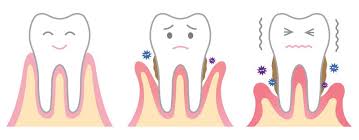Wisdom teeth are the very last ‘permanent teeth’ to erupt in the human mouth, typically between 17-24 years of age. Many times, these teeth emerge without incident. However, when there isn’t adequate room in the mouth and jaw to accommodate these teeth, you can suffer from an impaction, infection, damage to adjacent teeth, or other painful conditions. It is when this occurs that your dentist will recommend removal of your wisdom teeth.
The first portion of wisdom tooth removal has to do with the type of anaesthetic medication that will be used to provide pain relief. A local anaesthetic medication is injected into the surrounding tissues to eliminate pain during the procedure. Feeling of pressure and pulling will remain intact and you are awake. General anaesthesia allows you to be asleep for the duration of the procedure.
Once your anaesthetic has been administered, the dentist will make any necessary incisions in the gum tissue to expose the tooth, and remove the tooth using specialised dental forceps. In the case of impaction involving bone, it may be necessary to remove a small portion of the bony tissues. Once the tooth has been removed, the socket is thoroughly cleansed and any incisions made are closed with sutures, which may be dissolvable.
Following the removal of your wisdom teeth, it is recommended that you rest and limit strenuous activities while you are healing. If you’ve received sedation or general anaesthesia, it may be necessary to have someone to help you at home for a day or so while you recover. Slight swelling or bleeding may occur for a few days after surgery, but should subside within 4-5 days. Be sure to follow post-care instructions given by your dentist, and watch for complications or side effects that warrant follow up.
To comply with the AHPRA Legislation we are required to advise that “Any surgical or invasive procedure carries risks. Before proceeding, you should seek a second opinion from an appropriately qualified health practitioner.”
Please contact us today for more information on wisdom tooth monitoring, removal, or any other dental health concerns you might have.
